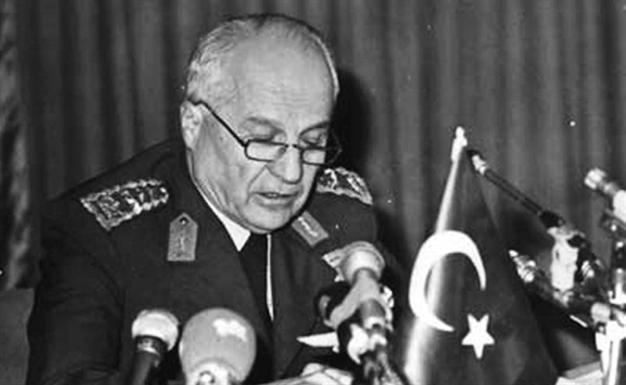Turkey generals go on trial, 32 years after coup
ANKARA - Agence France-Presse

Kenan Evren. Hürriyet file photo
Turkey's 94-year-old former president Kenan Evren is due to go on trial tomorrow to answer for his leading role in the country's last
coup, more than three decades after he seized power.
Evren and his co-conspirator Tahsin Sahinkaya, 86, will try to justify their decision to oust the civilian government on September 12,
1980, and establish a brutal military regime which was accused of widespread human rights abuses.
The pair are in poor health and they could end up being cross-examined in their hospital beds rather than appearing in the dock at an Ankara high court.
The military, which has long seen itself as the guarantor of secularism in Turkey, has staged three coups -- in 1960, 1971 and 1980 -- as well pressuring an Islamist-rooted government to relinquish power in 1997.
But the 1980 coup was the bloodiest of them all. Hundreds of thousands of people were arrested, about 250,000 were charged, 50 were executed, dozens more died of torture and tens of thousands were exiled.
Evren and Şahinkaya are the only members of the military
junta that seized power in 1980 who are still alive and their trial is seen as another episode in the current government's campaign against the once untouchable top brass.
The Justice and Development Party (
AKP) government is a party to the prosecution as one of the alleged victims of the 1980 coup, Prime Minister Recep Tayyip Erdoğan said today.
The pair face life imprisonment if they are convicted of committing crimes against the state -- the heaviest punishment available since Turkey abolished the death penalty in 2002.
Evren, who served as Turkey's seventh president from 1982 to 1989, is currently in hospital and both defendants have told the court through their lawyers that they will probably be unable to physically stand trial.
Plans are being made to enable the two defendants to join the trial through a video-conference from their hospital beds.
"He will appear before the court if he is able to do so but his health is not good," a member of Evren's family told AFP.
Dozens of victims of the military junta are set to stage a demonstration outside the courthouse while the generals put their case.
The junta has always justified its intervention with the argument that daily clashes between extremist right and left-wing groups were bringing Turkey to the edge of a civil war.
After two years of military rule, the junta brought in a new constitution in 1982 which formalised Evren's position as president.
The charter has been heavily amended since Evren retired in 1989 and the military's political influence has declined sharply since the AKP came to power in 2002.
The constitution had exempted the generals from any trial but that prevision was removed as part of a package of amendments adopted in a referendum exactly 30 years after the coup.
The decision to put Evren and Şahinkaya on trial was announced in January. Evren had opted out of public life since his retirement, spending much of his time painting by the sea.
Tensions between the fiercely secularist military and Erdogan's AKP have been building for years with dozens of army officers, including a number of other retired generals, landing up in court over alleged coup plots. Turkey's former army chief İlker Başbuğ went on trial this month for an alleged bid to topple the government.
Başbuğ, who headed the armed forces from 2008 to 2010, is the most senior officer to be implicated in a massive investigation into the so-called Ergenekon network, a hardline nationalist group accused of overthrowing the government.
Critics accuse Erdogan's government of launching Ergenekon probes as a tool to silence its opponents and impose authoritarianism-- charges it denies.
